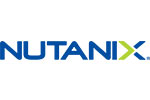Site Reliability Engineer 2
10+ Site Reliability Engineer 2 Interview Questions and Answers

Asked in Shell Recharge Solutions

Q. What are the basic concepts of Object-Oriented Programming (OOP)?
OOP is a programming paradigm based on the concept of objects, which can contain data in the form of fields and code in the form of procedures.
Encapsulation: Bundling data and methods that operate on the data into a single unit.
Inheritance: Allowing a class to inherit properties and behavior from another class.
Polymorphism: The ability for objects to be treated as instances of their parent class or their own class.
Abstraction: Hiding the complex implementation details and sho...read more

Asked in Highspot

Q. How do you update manifests or deployments using ArgoCD?
Updating manifests or deployments using ArgoCD involves making changes to the Git repository and letting ArgoCD automatically sync the changes to the cluster.
Make necessary changes to the manifests in the Git repository.
Commit and push the changes to the repository.
ArgoCD will automatically detect the changes and sync them to the cluster.
Monitor the sync process and ensure that the deployment is successful.

Asked in Okta

Q. What is your experience with cloud providers?
I have experience working with AWS, GCP, and Azure cloud providers.
Managed infrastructure on AWS EC2 instances
Utilized GCP services like Compute Engine and Cloud Storage
Deployed applications on Azure Virtual Machines

Asked in Highspot

Q. How is GitOps better than a normal strategy?
GitOps is better than normal strategy as it allows for declarative configuration, version control, automated workflows, and easier collaboration.
Declarative configuration: GitOps uses declarative configuration stored in Git repositories, making it easier to manage and track changes.
Version control: GitOps leverages Git's version control capabilities to track changes, rollback to previous versions, and ensure consistency.
Automated workflows: GitOps enables automated deployment...read more

Asked in Highspot

Q. What are the differences between pull-based and push-based systems?
Pull based and push based are two different methods of data transfer in computing.
Pull based: Data is requested by the receiver when needed. Examples include HTTP GET requests and polling.
Push based: Data is sent by the sender without the receiver requesting it. Examples include notifications and real-time data streams.

Asked in Microsoft Corporation

Q. Design highly available scalable and secure infrastructure
To design highly available scalable and secure infrastructure, we need to focus on redundancy, automation, monitoring, and disaster recovery.
Use load balancers to distribute traffic across multiple servers
Implement auto-scaling to handle sudden spikes in traffic
Use multiple availability zones to ensure high availability
Implement security measures such as firewalls, encryption, and access controls
Regularly monitor the infrastructure for performance and security issues
Implement...read more
Site Reliability Engineer 2 Jobs




Asked in Swiggy

Q. Linux Basis commands file system in depth
Linux file system commands and basics
File system hierarchy standard (FHS)
Basic file system commands like ls, cd, pwd, mkdir, rmdir
File permissions and ownership (chmod, chown)
Disk space management (df, du)
File manipulation commands like cp, mv, rm
Understanding inodes and file system types (ext4, xfs)
Mounting and unmounting file systems (mount, umount)

Asked in Avalara Technologies

Q. What is kubernetes svc, roles,rolebindings
Kubernetes svc, roles, and rolebindings are key components for managing access control and network communication within a Kubernetes cluster.
Kubernetes svc (service) is an abstraction that defines a logical set of pods and a policy by which to access them.
Roles are used to define permissions within a namespace, specifying what actions a user or group can perform.
Rolebindings are used to bind roles to subjects, such as users or groups, granting them the defined permissions.
Exa...read more
Share interview questions and help millions of jobseekers 🌟


Asked in Booking.com

Q. Describe how you would design a configuration store management system.
A configuration store management system to store and manage application configurations.
Use a centralized database to store configuration data
Implement version control to track changes and rollback if needed
Provide access control to limit who can modify configurations
Support different formats for configuration data (e.g. JSON, YAML)
Include an API for applications to retrieve configurations

Asked in Nutanix

Q. Explain and write the commands of linux
Linux commands are used to interact with the operating system through the command line interface.
Commands are case-sensitive
Most commands have options and arguments that can be used to customize their behavior
Common commands include ls (list files), cd (change directory), mkdir (make directory), rm (remove files), and more

Asked in Progression Infonet

Q. What is the difference between a hard link and a soft link?
Hard links and soft links are two types of links used in file systems.
A hard link is a direct reference to a file on the disk, while a soft link is a pointer to the file's location.
Hard links have the same inode number as the original file, while soft links have a different inode number.
Deleting the original file does not affect hard links, but it breaks soft links.
Hard links can only be created within the same file system, while soft links can point to files on different fil...read more

Asked in Wipro

Q. Join query in sql
A join query in SQL is used to combine rows from two or more tables based on a related column between them.
Use JOIN keyword to specify the tables to be joined
Specify the columns to be joined on using ON keyword
Types of joins include INNER JOIN, LEFT JOIN, RIGHT JOIN, and FULL JOIN
Interview Questions of Similar Designations
Interview Experiences of Popular Companies








Reviews
Interviews
Salaries
Users
















